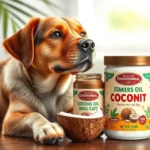
Puppies are known for their playful antics, boundless energy, and, unfortunately, their occasional bouts of flatulence. If you’ve ever found yourself asking, “Why does my puppy fart so much?”, you’re not alone. Flatulence in puppies is a common concern among pet owners, and understanding the underlying causes can help you manage this sometimes embarrassing issue. This guide will explore the reasons behind your puppy’s gas, offer solutions, and provide insight into when you should seek veterinary advice.
Understanding Puppy Flatulence
What is Flatulence?
Flatulence, commonly referred to as gas, is the accumulation of excessive air or gas in the digestive tract. While all dogs experience some level of flatulence, it becomes a concern when it is frequent and excessive. Normal flatulence can occur occasionally without causing distress, but when your puppy is farting more than usual, it may indicate an underlying issue that needs attention.
Why Puppies Fart
Puppies fart for a variety of reasons, many of which are perfectly natural.
-
Digestive System Development: Puppies are still developing their digestive systems. Young pups often experience gas as their intestines adapt to processing food.
-
Diet Influences: The type of food your puppy consumes plays a significant role in gas production. High-fiber or low-quality foods can lead to increased flatulence.
-
Swallowing Air: Puppies tend to be playful eaters and sometimes gulp their food down too quickly, swallowing air in the process. This swallowed air can lead to gas accumulation and, subsequently, flatulence.
Common Causes of Excessive Flatulence in Puppies
Dietary Factors
The food you feed your puppy is one of the most significant contributors to excessive gas. Here are some dietary factors to consider:
-
Low-Quality Ingredients: Foods filled with fillers, artificial preservatives, and low-quality ingredients can lead to digestive upset and gas.
-
High-Fiber Diets: While fiber is essential for digestion, too much of it can result in gas production. Be cautious with high-fiber foods, especially those that include beans and legumes.
-
Certain Proteins: Some proteins, such as dairy or specific grains, can trigger gas in sensitive puppies. If your puppy shows signs of gas after consuming these foods, it may be worth exploring alternatives.
-
Introduction of New Foods: Puppies may experience gas when you introduce new foods or abruptly change their diet. Gradual transitions can help mitigate this issue.
Eating Habits
Puppies often don’t have the best table manners. Fast eaters are more likely to gulp air along with their food, leading to increased gas. Here are some suggestions to help reduce flatulence related to eating habits:
-
Use Slow-Feed Bowls: These specially designed bowls encourage puppies to eat at a slower pace, helping to minimize the amount of air they swallow.
-
Portion Control: Feeding smaller, more frequent meals can help prevent your puppy from overeating and reduce the likelihood of gas.
-
Scheduled Feeding Times: Establishing a routine can help your puppy develop better eating habits and potentially lessen flatulence.
Health Issues
While flatulence is often harmless, excessive gas can sometimes indicate underlying health issues. Here are some medical conditions to watch for:
-
Intestinal Parasites: Worms and other parasites can disrupt digestion, leading to gas. Regular vet visits and deworming can help manage this risk.
-
Food Allergies and Intolerances: Some puppies may be allergic or intolerant to certain ingredients, which can manifest as gas, diarrhea, or skin issues.
-
Gastrointestinal Disorders: Conditions such as inflammatory bowel disease or pancreatitis can lead to excessive gas and other digestive problems. If your puppy shows persistent symptoms, consulting a veterinarian is essential.
Solutions to Reduce Puppy Flatulence
Dietary Adjustments
Making changes to your puppy’s diet can significantly reduce the occurrence of flatulence. Here are some recommendations:
-
High-Quality Dog Food: Invest in a premium puppy food that is free from fillers and artificial ingredients. Look for brands that prioritize high-quality protein sources and easily digestible ingredients.
-
Gradual Introduction of New Foods: When switching your puppy’s diet, do so gradually over a week or more. This approach allows their digestive system to adjust without causing excess gas.
Feeding Techniques
Adjusting how you feed your puppy can also help reduce flatulence:
-
Use Slow-Feed Bowls: As mentioned, these bowls can help slow down your puppy’s eating pace, reducing air intake and gas production.
-
Portion Control: Monitor portion sizes to ensure your puppy is not overeating. Smaller meals can be easier to digest.
-
Scheduled Feeding Times: Establish a consistent feeding schedule to help regulate your puppy’s eating habits.
Probiotics and Digestive Aids
Probiotics can play a vital role in maintaining your puppy’s digestive health.
-
Overview of Probiotics: These beneficial bacteria help maintain a healthy gut flora, improving digestion and reducing gas. Look for probiotic supplements designed specifically for dogs.
-
Other Digestive Aids: Consider digestive enzymes or natural aids like pumpkin or yogurt (if your puppy is not lactose intolerant) to help ease digestion and reduce flatulence.
When to Seek Veterinary Help
Signs of Concern
While flatulence can be a normal part of puppy life, certain symptoms may indicate a more serious issue. You should consult a veterinarian if your puppy displays any of the following:
-
Persistent Diarrhea: Frequent loose stools can indicate digestive distress or infection.
-
Vomiting: Occasional vomiting is common, but regular vomiting requires veterinary attention.
-
Lethargy: If your puppy is unusually tired or inactive, it may be a sign of illness.
-
Changes in Appetite: Sudden loss of appetite or an increase in food consumption can be concerning.
Possible Diagnostic Procedures
If you suspect your puppy’s excessive flatulence is linked to a health issue, your veterinarian may perform several diagnostic tests:
-
Fecal Exams: To check for parasites or bacterial infections.
-
Blood Tests: To evaluate overall health and detect underlying conditions.
-
Imaging Studies: X-rays or ultrasounds may be used to examine the gastrointestinal tract if more serious issues are suspected.
Preventive Measures for Dog Health Care
Regular Vet Check-ups
Routine veterinary visits are crucial for maintaining your puppy’s overall health. Regular check-ups allow your vet to monitor your puppy’s growth, vaccinations, and parasite control.
Healthy Lifestyle Choices
In addition to regular vet visits, promoting a healthy lifestyle can greatly impact your puppy’s digestion and overall well-being:
-
Exercise: Regular physical activity aids digestion and helps prevent gas. Playtime, walks, and interactive games are great ways to keep your puppy active.
-
Mental Stimulation: Engaging your puppy in mentally stimulating activities can reduce anxiety and stress, which can also contribute to digestive issues.
Conclusion
Understanding why your puppy farts so much is essential for maintaining their health and ensuring their comfort. By recognizing the common causes of flatulence, adjusting their diet and feeding habits, and monitoring their overall health, you can significantly reduce this issue. Always keep an open line of communication with your veterinarian to address any concerns about your puppy’s health. With the right care and attention, you can help your puppy lead a happy, healthy life, free from excessive gas.
Feel free to share your experiences or any tips you have for managing puppy flatulence in the comments below!









